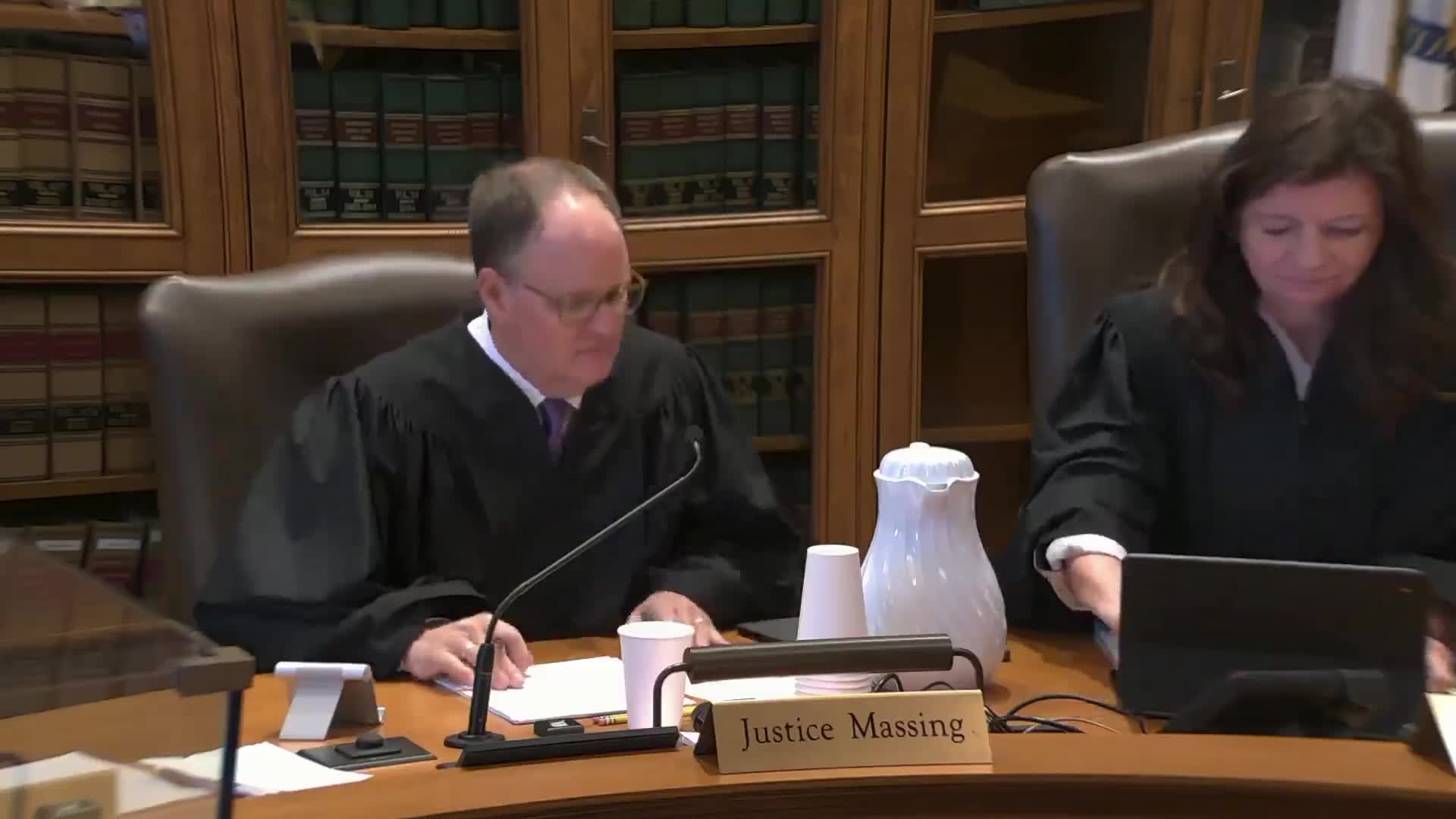Appeals court hears fee dispute between architect RFA and Carrollton West Pet Hospital over "total cost or estimated cost" language
October 04, 2025 | Judicial - Appeals Court Oral Arguments, Judicial, Massachusetts
This article was created by AI summarizing key points discussed. AI makes mistakes, so for full details and context, please refer to the video of the full meeting. Please report any errors so we can fix them. Report an error »

The Massachusetts Appeals Court on Oct. 3 heard argument in Rauhaus Friedenfeld Associates v. Carrollton West Pet Hospital, a contract-fee dispute over how to calculate an architect's fee when the parties executed an AIA-style prime contract and significant site work later was self-performed by the owner.
Appellant counsel Joe Camenzo asked the court to remand to the trial court for additional evidence about actual construction costs and market-value measures, arguing the trial court misread the prime contract and improperly concluded total cost could not be calculated because the project was only "50% complete." Counsel said that when an owner and contractor have an agreement to build, the contract price should govern the architect's fee (the "total cost") rather than the trial court's use of an early estimate.
RFA's counsel Ken Walton defended the trial judge's approach. Walton said the judge correctly found the project only partially complete, that the owner had self-performed substantial site work, and that the record lacked reliable evidence of a fixed final cost when the judge reached his findings. Walton told the panel the judge reasonably used an estimated cost based on the responsible bid (TriStar) and other documentary evidence.
The parties debated the contract language that sets an architect's base fee as a percentage of "total cost or estimated cost to the owner for all elements of the project designed by the architect." The panel asked whether the phrase "total cost" could ever be used when change orders and site contingencies routinely alter final cost. Counsel for Carrollton said a contract price between owner and contractor would supply a "total cost" metric when available; RFA responded that the specific facts here (owner self-performing work and the project not complete at trial) made estimated cost the only practical and fair measure.
The trial judge's order (Judge Tingle) used estimated cost methodology and concluded RFA was owed a remainder of its fee after crediting past payments and deducting 10% for construction-administration services RFA did not perform on-site. Counsel for the owner argued that if the court enforces the addendum, the court should insert a curative term; RFA said the judge's reading of the contract was appropriate.
The court took the matter under submission. Both sides asked for affirmance or remand consistent with their readings of the contract.
Why it matters: The appeal turns on interpretation of standard architectural contract terms (often AIA forms) and whether an owner's self-performed site work and an incomplete project at trial require courts to rely on estimates rather than contract prices to calculate percentage-based fees.
Appellant counsel Joe Camenzo asked the court to remand to the trial court for additional evidence about actual construction costs and market-value measures, arguing the trial court misread the prime contract and improperly concluded total cost could not be calculated because the project was only "50% complete." Counsel said that when an owner and contractor have an agreement to build, the contract price should govern the architect's fee (the "total cost") rather than the trial court's use of an early estimate.
RFA's counsel Ken Walton defended the trial judge's approach. Walton said the judge correctly found the project only partially complete, that the owner had self-performed substantial site work, and that the record lacked reliable evidence of a fixed final cost when the judge reached his findings. Walton told the panel the judge reasonably used an estimated cost based on the responsible bid (TriStar) and other documentary evidence.
The parties debated the contract language that sets an architect's base fee as a percentage of "total cost or estimated cost to the owner for all elements of the project designed by the architect." The panel asked whether the phrase "total cost" could ever be used when change orders and site contingencies routinely alter final cost. Counsel for Carrollton said a contract price between owner and contractor would supply a "total cost" metric when available; RFA responded that the specific facts here (owner self-performing work and the project not complete at trial) made estimated cost the only practical and fair measure.
The trial judge's order (Judge Tingle) used estimated cost methodology and concluded RFA was owed a remainder of its fee after crediting past payments and deducting 10% for construction-administration services RFA did not perform on-site. Counsel for the owner argued that if the court enforces the addendum, the court should insert a curative term; RFA said the judge's reading of the contract was appropriate.
The court took the matter under submission. Both sides asked for affirmance or remand consistent with their readings of the contract.
Why it matters: The appeal turns on interpretation of standard architectural contract terms (often AIA forms) and whether an owner's self-performed site work and an incomplete project at trial require courts to rely on estimates rather than contract prices to calculate percentage-based fees.
View full meeting
This article is based on a recent meeting—watch the full video and explore the complete transcript for deeper insights into the discussion.
View full meeting
